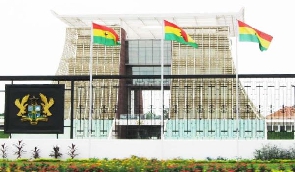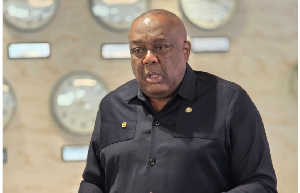In Ghana, a president is elected to serve a four-year term acting as head of state and government. The elected president can only serve the nation for a maximum of two terms thus 8 years in office. General elections are conducted every four years which allows citizens to vote for their preferred presidential candidate to occupy the seat as the first gentleman of the land.
There have been some concerns with regard to whether the four-year term in office as president should be extended to allow the government in office more time to execute their plans to fastrack the development of the nation. One of the popular advocators for this move is former President John Agyekum Kufour, who has suggested a five-year term in office for presidents.
Mr Kufour believes that a president cannot make the necessary impact in a four-year term in office. He has argued that a president needs time to implement his programs and also plan the economy.
Most often, projects which are halfway through completion are abandoned by successive government due to the fact that it was started by its predecessors.
In most scenarios, the original estimated cost of the project shot-up due to the new cost of materials and delays in the completion of the project. Several millions of cedis spent on abandoned projects go down the drain and, in most cases, don’t get accounted for, this does not provide value for money.
One of the challenges faced by the country has been the unavailability of a strategic plan that will serve as a roadmap to political leaders. Ghana is still termed as a “developing country” due to the many challenges that the nation faces after almost 63 years of independence from Britain.
Former President John Dramani Mahama who lost his seat as president in the 2016 elections is seeking to be re-elected into office to take off from where he left off. John Mahama has criticized the Akufo-Addo-led government of abandoning several projects which were commenced under his administration. Notable is the Mpaha Community Day School in the Central Gonja District among other infrastructural projects.
The incumbent president, Nana Akufo-Addo is also seeking re-election in the upcoming December 7 general elections in 2020. According to the Vice-President, Mahamudu Bawumia, the New Patriotic Party has completed 72 % of its 2016 campaign promise urging Ghanaians to maintain their government in office in other to complete their works and projects.
BACKGROUND OF GHANA’S HEADS OF STATE
Kwame Nkrumah became the first president of the Republic of Ghana being elected into office by parliament for a 5-year term, this was under the 1960 Constitution which was the first constitution of the Republic of Ghana. He served from 1960 to 1965 under the political alliance of the Convention Peoples Party.
Ghana has recorded a number of Military rule where some group of persons led coup d'état to overthrew governments, popular amongst them were the 1966 coup that saw the overthrow of Kwame Nkrumah by Lieutenant-General Joseph Arthur Ankrah, the overthrow of President Edward Akufo-Addo by General Ignatius Kutu Acheampong in 1972 and the overthrow of President Limann and his government by Flight Lieutenant Jerry Rawlings in a coup d'état in 1981 where he ruled till January 1993 thus 11 years under the Provisional National Defence Council becoming the longest military ruler in Ghana.
John Agyekum Kuffour was the second President of the Fourth Republic of Ghana which marked the end of Jerry Rawlings' second term. President Agyekum Kuffour severed a term of 8-years from 7 January 2001 to 7 January 2009 under the political affiliation of the New Patriotic Party (NPP).
One of his notable achievements was the repeal of the Criminal Lebel Law which permitted journalists to be prosecuted criminally for the content of their reporting. The law was considered as a threat to media freedom, it was not until his assumption into office as President that Parliament repealed the Criminal Libel and Seditious Laws.
At the end of President Agekum Kuffours 8-years term, John Evans Atta-Mills was elected into office as president on 7 January 2009 under the ticket of the National Democratic Congress. Upon his death on July 24, 2012, serving for 3 years and 199 days in office, the Vice-President, John Dramani Mahama took over and later won the general election in 2012.
President Mahama was elected into office on 24 July 2012, and only served a single term of four-years after being defeated in the 2016 general elections by the opposition New Patriotic Party’s candidate, Nana Addo Dankwa Akufo-Addo. The 2016 election marked the first time in a presidential election that an opposition candidate won a majority outright in the first round.
General News of Tuesday, 14 January 2020
Source: www.ghanaweb.com













